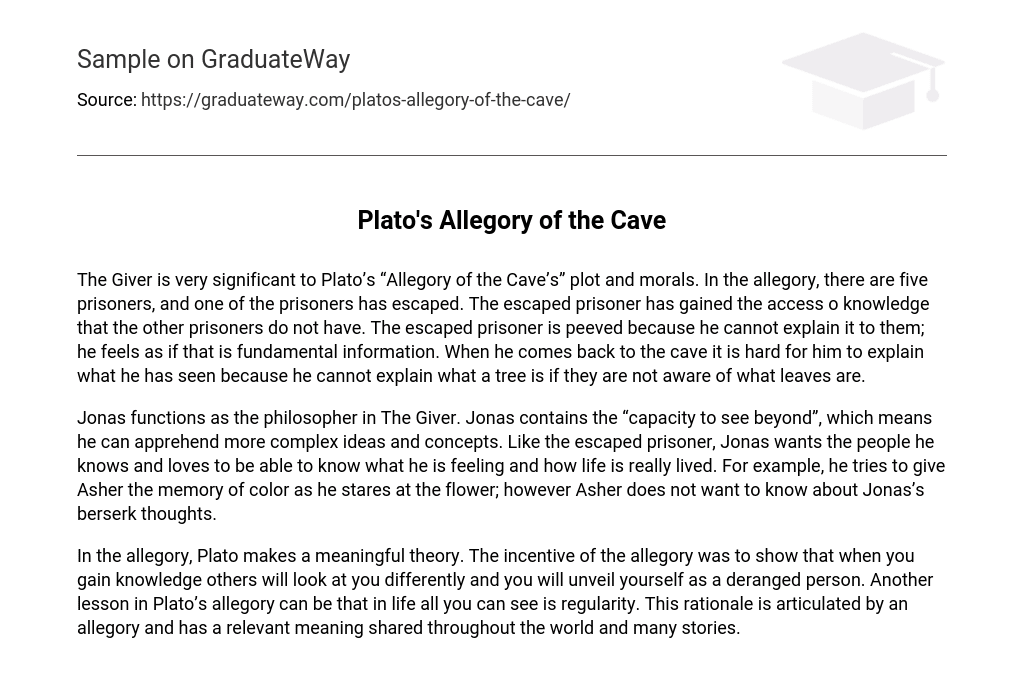The Giver is very significant to Plato’s “Allegory of the Cave’s” plot and morals. In the allegory, there are five prisoners, and one of the prisoners has escaped. The escaped prisoner has gained the access o knowledge that the other prisoners do not have. The escaped prisoner is peeved because he cannot explain it to them; he feels as if that is fundamental information. When he comes back to the cave it is hard for him to explain what he has seen because he cannot explain what a tree is if they are not aware of what leaves are.
Jonas functions as the philosopher in The Giver. Jonas contains the “capacity to see beyond”, which means he can apprehend more complex ideas and concepts. Like the escaped prisoner, Jonas wants the people he knows and loves to be able to know what he is feeling and how life is really lived. For example, he tries to give Asher the memory of color as he stares at the flower; however Asher does not want to know about Jonas’s berserk thoughts.
In the allegory, Plato makes a meaningful theory. The incentive of the allegory was to show that when you gain knowledge others will look at you differently and you will unveil yourself as a deranged person. Another lesson in Plato’s allegory can be that in life all you can see is regularity. This rationale is articulated by an allegory and has a relevant meaning shared throughout the world and many stories.





